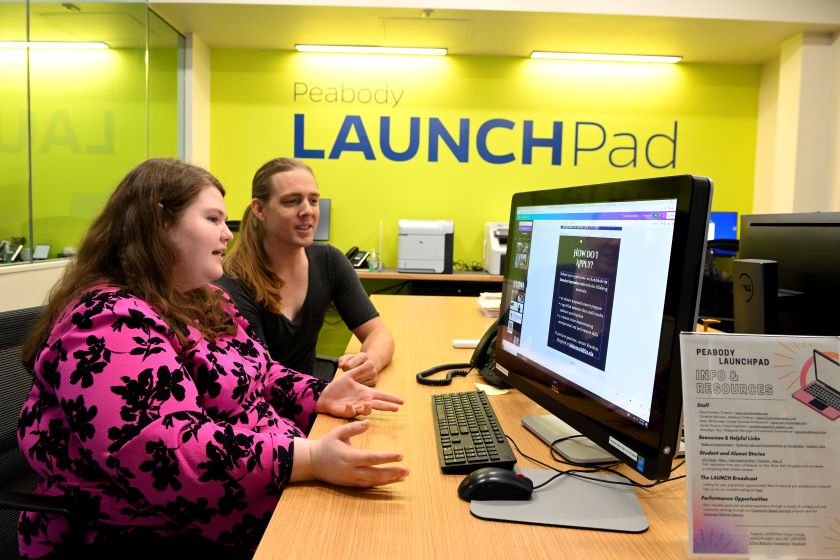Internship Guidelines
Create on-campus internship opportunities for students at Peabody!

Through internships, students build career-enhancing skills and experiences, and your department benefits from focused intern roles that add value and capacity to your team.
Within an evolving 21st century arts industry, research supports paid internships as one way to help students develop transferable skills and gain tangible experiences in preparation for their future careers. A recent SNAAP special report found that, in addition to gaining skills such as interpersonal skills, comfort with technology, and entrepreneurial/business skills through internships, students further benefit from growing their professional networks through mentoring relationships formed in these roles. Overall, students who held paid internships are more likely to stay employed in the arts and indicated higher overall job satisfaction.
In light of the many benefits of internships, Peabody LAUNCHPad and JHU’s University Experiential Learning department encourage and support the development of various on-campus internships at Peabody. The process is simple! Internships can be created by transforming existing on-campus student jobs, or by hiring new positions altogether. Here are the basic parameters:
- Identify the primary responsibilities and skillsets the intern will develop in this position.
- Create a title for the role. Ideally, this should represent the responsibilities and skills well on a student’s resume (e.g. Marketing Intern, Production Intern, etc.)
- The internship should consist of at least 100 total hours of work. This can take place over one or more semesters or even multiple years.
- Post internships and hire students through SMILE, JHU’s student job posting system.
- Follow the Hopkins GROW internship protocol to integrate structured conversation and mentorship. This framework involves at least one mentorship conversation, and can be easily adapted to your department’s capacity and work structure.
Sample Timeline
The internship structure is entirely flexible to the needs of your department. Here is one potential framework and timeline for an academic year internship, to consider as a suggestion.
- Identify hiring needs and create job description| July
- Post internship to SMILE | August
- Interview and hire students | September
- Internship begins, starting with onboarding/training | Sept/Oct
- Hopkins GROW mentorship check-in | late Jan/early Feb
- Internship ends, followed by closing debrief | May
Other Logistical Notes
- Students can work no more than 20 hours per week for all campus employment, including internships.
- Rate of pay is flexible to your department’s budget and responsibilities of the position. The JHU minimum rate for student positions is currently $15 per hour.
- If desired, eligible interns can be paid through Federal Work Study, just like other on-campus jobs.